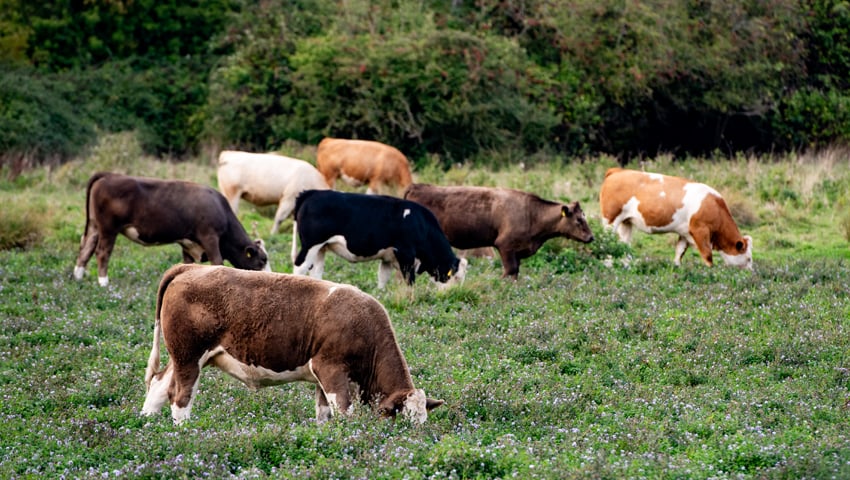Last week’s Regenerative Agriculture Summit in Amsterdam provided an opportunity for regen ag supply-chain professionals to meet and exchange ideas.
The conference included presentations from food companies and processors, as well as investors and financial institutions.
In previous years the summit has been criticised for not attracting and including enough farmers. This year there was an active attempt to rectify this – more farmers were on the panels, and around fifty places were allocated specifically for farmer attendees.
Abigail Saunders, an organic dairy farm manager from Eastrop Farm which produces meat and milk, was one of the farmers who attended from the UK.
Saunders said that she was pleased that the conference began with a brief farm tour of an organic dairy farm on the outskirts of Amsterdam. She said that this gave delegates the opportunity to see how a farmer was actually implementing regenerative agriculture. The Dutch farmer also highlighted the importance of the social aspects of agriculture alongside the environmental and financial.
Saunders identified her main take-aways from the conference:
Managing risk – climate variability is increasing the risk and cost to all businesses within the supply chain beginning at farm level. Regenerative agriculture is a means to reduce this and increase productivity from the land.
Farmer led movement – the change and knowledge exchange needs to start with the farmer. Farmers need to lead the knowledge exchange and be supported financially in this transition.
Data – This is and will to a greater extent be important in the future. Everyone across the supply chain will become increasingly data hungry. Ensuring the farmer remains in control of their data will be key alongside ensuring what is collected is valuable and concise. Data will be required when having conversations with the banks and buyers.
Outcomes over actions – There is still uncertainty over the metrics required to monitor regenerative agricultural practices and prove effectiveness. It was highlighted over the few days that outcomes are far more important than actions. This will require supportive data and could increase issues for corporates wanting to support farmers, but allows the farmer to experiment and adapt.
Ruminants – a crucial aspect to regenerative agriculture.
Saunders concluded, “It was a fascinating few days and I have come away with a far greater network of professionals across the supply chain and across the world.”
